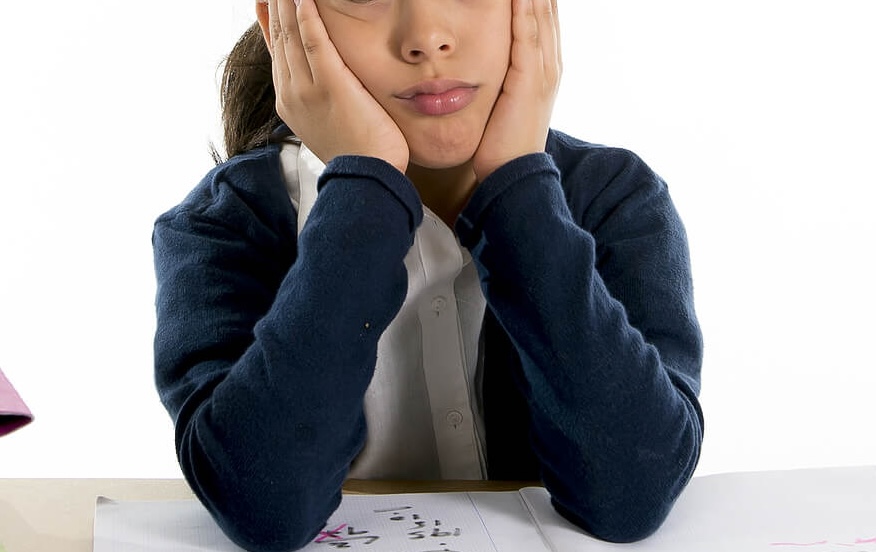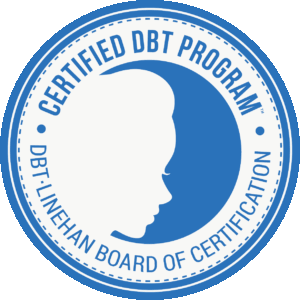Written By: Rob Peterman, LAC
As a parent, it can be difficult and challenging trying to figure out how to help your child who struggles with big emotions. From tantrums, intense frustration, and overwhelming sadness, helping your child navigate their feelings requires understanding, patience, and the right tools. One effective approach to help navigate through these challenges is Dialectical Behavior Therapy (DBT). DBT therapists work with children in therapy for children by teaching them valuable skills to manage their emotions, improve relationships, and build resilience.

What is DBT?
Dialectical Behavior Therapy (DBT) is a therapeutic approach that combines cognitive-behavioral techniques with mindfulness practices. It focuses on teaching individuals to manage intense emotions, improve relationships, and tolerate distress without resorting to harmful behaviors. DBT emphasizes the balance between acceptance and change—acknowledging the validity of emotions while also helping children develop practical skills to regulate them.
Key DBT Skills for Children
DBT can be highly effective for your child in helping them develop emotional regulation skills. Here are some of the core DBT skills that children can learn in therapy and apply in their everyday lives:
1. Mindfulness
Mindfulness teaches children to stay present and aware of their emotions without getting overwhelmed. By practicing mindfulness, children can learn to notice their feelings without judgment, giving them a moment to respond rather than react impulsively. This practice helps them understand their emotional triggers and gain greater control over their responses.
2. Emotion Regulation
DBT teaches children specific strategies for managing overwhelming emotions. Teaching children how to identify their emotions early on helps them take action before their feelings spiral out of control. Techniques like deep breathing, grounding exercises, and positive self-talk can help children cool down and think more clearly when they’re feeling upset.
3. Distress Tolerance
Children often face situations that bring on strong emotions but they can’t always avoid them. Distress tolerance skills help children deal with emotional discomfort in healthy ways. Such as using distraction techniques, self-soothing methods, or thinking through the situation logically. This helps them to manage difficult moments without resorting to negative or harmful behaviors.
DBT also teaches children the concept of “radical acceptance,” which is the idea that, while we may not like or agree with every situation, it is important to accept reality as it is in the moment, which can help reduce frustration.
4. Interpersonal Effectiveness
Strong relationships are built on effective communication and emotional regulation. DBT helps children navigate social interactions. Teaching them skills for assertiveness, empathy, and conflict resolution. By practicing these interpersonal skills, children can learn to express their needs, set boundaries, and cope with difficult conversations in healthier ways.
How DBT Can Help Your Child Build Resilience
Emotional regulation and resilience go hand in hand. DBT doesn’t just teach children how to manage their emotions; it also equips them with the tools to bounce back from difficult situations. Resilience isn’t about avoiding emotional pain—it’s about learning how to handle it in a way that leads to personal growth and emotional strength.
Through DBT, children learn that emotions are not inherently “good” or “bad,” but are signals that provide valuable information. By approaching their feelings with mindfulness and acceptance, they begin to develop a healthier relationship with their emotions, which builds long-term resilience. Instead of feeling overwhelmed or helpless in the face of difficult emotions, children can rely on the skills they’ve learned to manage stress, cope with change, and recover from setbacks.
Why DBT Works for Children
What makes DBT so effective for children is its structured and practical nature. DBT focuses on concrete skills that can be directly applied to real-life situations. Children can practice these skills both in therapy and at home, with support from parents, teachers, and caregivers.
Additionally, DBT is designed to be collaborative and supportive. Creating a safe and non-judgmental space where children can explore their emotions without fear of criticism. For children who may struggle with expressing themselves verbally, the behavioral component of DBT provides tangible, actionable strategies that help them feel empowered.
How Parents Can Support DBT at Home
As a parent, your role in your child’s DBT journey is crucial. Here are some ways you can support your child’s emotional growth at home:
- Model DBT skills: Show your child how you use mindfulness, emotion regulation, and distress tolerance strategies in your own life.
- Encourage practice: Help your child practice DBT skills during everyday situations. Such as when they’re frustrated with homework or upset about a social situation.
- Create a safe space: Create an environment where your child feels comfortable talking about their feelings and asking for help.
- Reinforce progress: Celebrate small victories when your child successfully applies DBT skills to manage their emotions.
DBT of South Jersey can help your child transform their relationship with their emotions, empowering them to thrive in challenging situations and bounce back stronger from adversity.
Our team of child therapist experts is here to help, offering counseling services both online for residents across New Jersey and in person at our Voorhees and Moorestown locations.

See Your Child Manage Their Big Emotions With DBT Therapy For Children in South Jersey
If your child is struggling with big emotions, DBT therapy for children can provide the tools they need to build emotional resilience. At DBT of South Jersey, our compassionate therapists specialize in helping children navigate intense feelings and develop healthy coping skills. Let us support your child on their journey to emotional balance and growth. Follow these three simple steps to get started:
- Contact us to book a free consultation with our intake team
- Meet with one of our skilled child and teen therapists
- Start seeing your child find emotional balance and growth.
Additional Services Offered By DBT of South Jersey
At DBT of South Jersey, we offer therapy for children aimed at fostering emotional development at our Voorhees and Moorestown locations. We understand you may have other concerns, which is why we also provide couples counseling, OCD treatment, trauma therapy, LGBTQIA+ affirming therapy, and holistic services like individual Reiki sessions. Explore our blog for more insights into therapy for children and teens!





